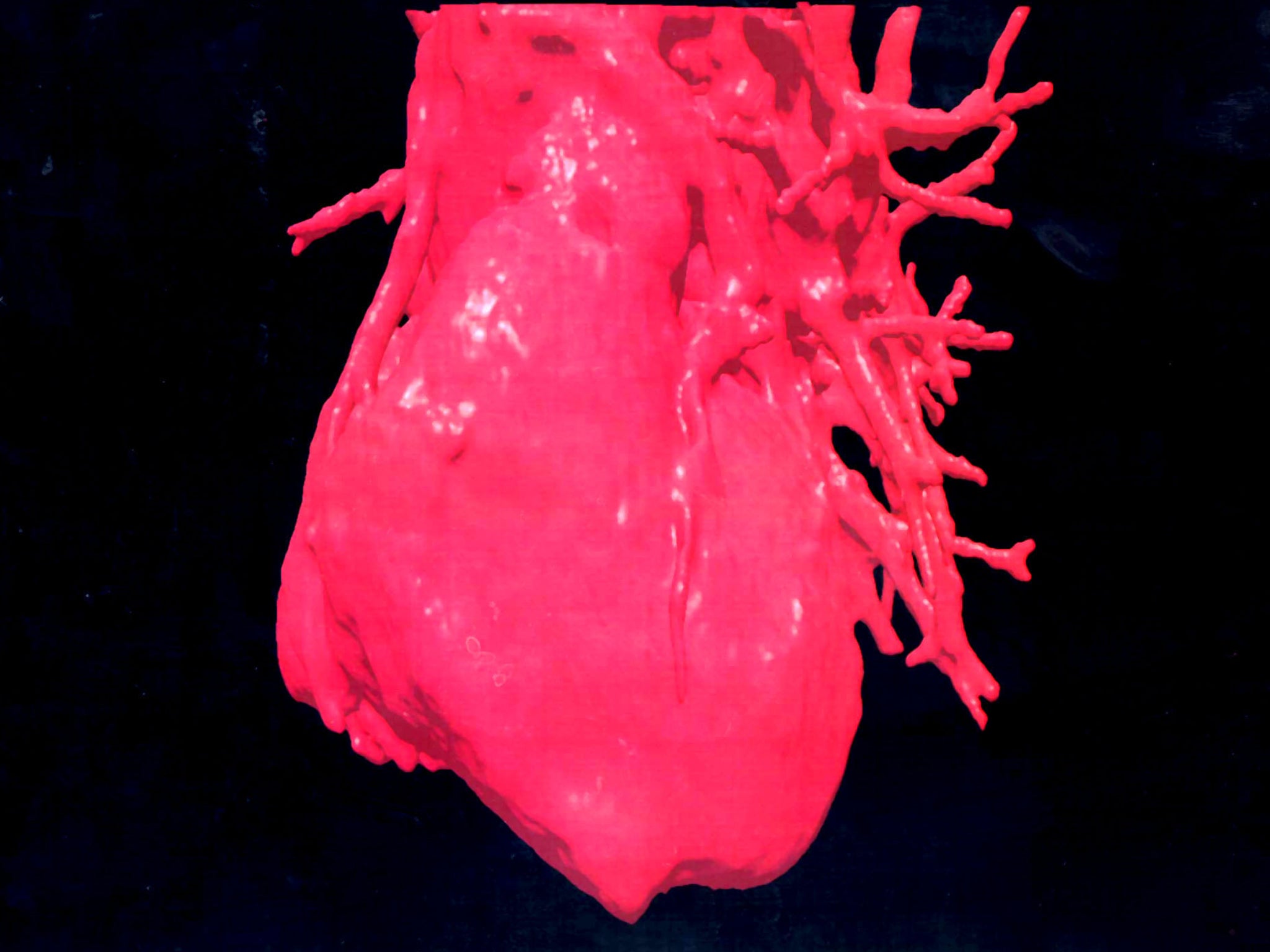Life-saving future drug could repair damage done by heart attacks, says leading scientist
As many as 175,000 people in the UK suffer a heart attack each year

A revolutionary drug that could repair the damage done by a heart attack, potentially saving thousands of lives, is now a real possibility, one of the UK’s leading cardiologists has said.
Unimaginable only a few years ago, scientists have “the groundwork” in place to begin searching for a cocktail of chemicals that could awaken cells within the heart, encouraging it to repair itself, said Professor Peter Weissberg, medical director of the British Heart Foundation (BHF).
As many as 175,000 people in the UK suffer a heart attack each year. More and more people are surviving such attacks, thanks to improved emergency treatments, but are left with irreparable damage to the organ. In severe cases, this leads to heart failure – a long-term, debilitating and often fatal condition that affects around half a million people in the UK.

In recent years, scientists have begun to investigate the possibility that stem cells or cells within the heart itself could be used to regenerate the damaged heart muscle – literally fixing a broken heart.
A major milestone has now been reached with the publication of two BHF-funded studies that point to the possibility of a drug treatment that could stimulate the heart’s own “repair kit”, Professor Weissberg told The Independent on Sunday.
One of the country’s most senior cardiologists, Professor Weissberg said that the studies had separately identified groups of previously unknown cells in mice which “can do the job of repairing the damage that occurs during a heart attack, but for some reason, do not”. Similar mechanisms are likely to exist in the human heart.
“The exciting thing is that it raises the possibility – in a few years’ time –[of identifying] the molecular signals that can wake those cells up,” he said. “You would give someone who has had a heart attack a drug in the form of an injection, or possibly tablets, which has a cocktail of the chemicals that home in to the heart and wake up its dormant repair cells.”
One of the studies, carried out at Imperial College London, identified a group of stem cells in mice hearts that show great promise in repairing damaged heart muscle. The second, at the University of Oxford, revealed for the first time that a group of vessels grown by the heart after a heart attack can aid muscle repair – and these can be encouraged to grow at a quicker rate using a specific protein called PDGFRα.
Previous research had investigated the mechanisms by which the heart is originally grown in the womb and discovered that newborn mice retain the ability to regenerate portions of heart muscle removed a few days after birth. Scientists hope to harness the mechanisms behind this to treat human patients.
“We have the molecular capacity in our bodies, it’s just that the mechanism has been switched off,” said Professor Weissberg. “If we can find out what the molecular process was to switch it off, then you start to understand how you might be able to switch it on again.”
Work at the two labs behind the latest studies will now proceed on two tracks: first, confirming that the findings in mice also apply to human hearts and, second, searching, through experimentation with mice, for the “right cocktail of chemicals to wake these cells up”.
Professor Weissberg urged the Government to put its weight behind future research with a “really good settlement for university sciences” in the forthcoming spending review, warning that any cuts could derail progress.
“The last two governments have been pretty good at supporting the UK’s biosciences by giving the universities a reasonable dollop of money,” he said.
Join our commenting forum
Join thought-provoking conversations, follow other Independent readers and see their replies
Comments